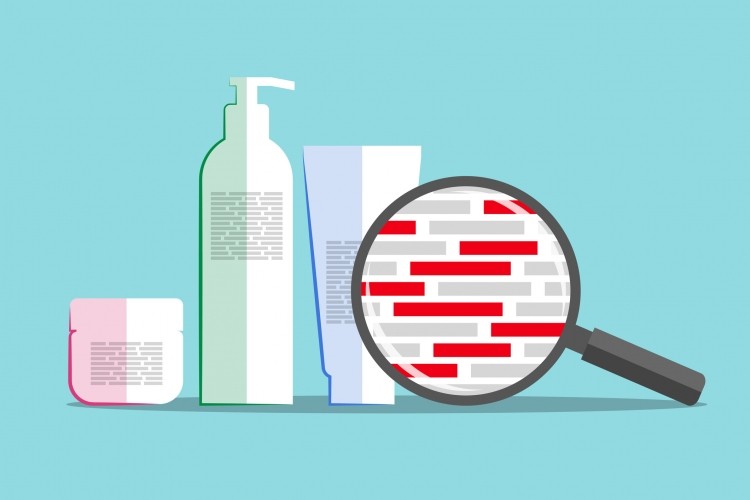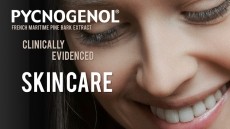Could racialized beauty norms be causing poor health outcomes?

Researchers at Columbia University Mailman School of Public Health, in partnership with environmental advocacy group WE ACT for Environmental Justice, recently published a study in the journal Environmental Justice detailing their findings regarding the use of chemical hair straighteners and skin lightening products.
The study, which surveyed 297 woman and femme-presenting individuals, examined “racialized beauty norms that motivate the use of chemical hair straighteners and skin lighteners linked to poor health outcomes.” When queried as to the motivation for using these products, respondents reported beauty as the leading reason.
Throughout history, BIPOC women have been the majority users of chemical hair straighteners and skin lightening products in an effort to conform to beauty standards favoring light skin and smooth/straight hair. These products can contain chemicals that can be harmful to human health, and risk can increase with frequency of use.
“The disproportionate burden of toxic chemicals from beauty products among women of color is an environmental injustice of beauty,” study authors asserted. Further, researchers explained, “intersectional systems of oppression (i.e., racism, sexism, classism) influence Eurocentric beauty norms (e.g., societal preferences for light skin and straight hair) and racialized beauty practices, all of which can have long term consequences on the health and wellbeing of marginalized populations.”
The study examined Black, Non-Hispanic Black, and Hispanic Black respondents’ historical use, current use habits, and perceptions surrounding the use of chemical straighteners, and the same for Asian, and Hispanic respondents regarding skin lightening products. Researchers determined that respondents’ results provide evidence suggesting “chemical straightener use has declined among Black women, in line with the rise of the natural hair movement, while skin lightener use by Asian woman remains steady.”
Chemical straighteners
Chemical straighteners use chemicals to break disulfide bonds in the proteins within the hair strand’s cortex, or inner layer. Products like relaxers can contain “harmful chemicals such as phthalates, parabens, and formaldehyde”, and studies have linked their use with earlier age at first menstruation as well as “increased risk of uterine fibroids and breast and uterine cancers.”
When asked about historical and current use, results determined just under half, or 44% of all female respondents had ever used a chemical straightener like a relaxer, and the percentage of current users dropped to 15%.
Out of all the demographics surveyed, Black respondents comprised the majority of chemical hair straightener users with 60% reporting historical use, and 19% reporting current use – slightly higher than the percent of overall current users. Hispanic Black respondents were close behind with just under half, or 48% reporting historical use, and nearly 1 in 4 or 24% responded that they are currently using chemical hair straighteners.
Researchers also examined the reasons why respondents would be motivated to use chemical hair straighteners like relaxers, with half confirming they believe others perceive women with straight hair as more beautiful, although just 36% stated that was also their personal belief. Results were similar “when respondents were asked about whether straight hair makes women look younger, wealthier, or more professional,” and affirmative respondents were subsequently found to be more likely to use chemical straightening products.
Skin lighteners
Per WebMD, skin lightening products, “also known as bleaching creams, whiteners, skin brighteners, or fading creams, work by reducing a pigment called melanin in the skin, and contain an active ingredient or a combination of ingredients that reduces the amount of melanin in the skin where it is applied.”
As noted in the study, skin lighteners can contain chemicals called corticosteroids, which can disrupt the body’s regulation of the hormone cortisol and lead to issue with metabolism as well as “mercury, which can cause kidney and nervous system damage.”
One quarter of female respondents reported historical skin lightener use with 16% confirming current use. For femme-identifying respondents, 22% confirmed historical skin lightener use, with less than 1 in 10 affirming current product use.
Of all demographics surveyed, respondents of Asian descent comprised the majority of skin lightener users with a frequency of 57% historical and current use rates. Results also revealed born outside the U.S. were more likely to use skin lightening products.
When researchers examined the reasons why respondents would be motivated to use skin lightening products, the results mirrored responses regarding chemical straightener: half affirmed they believe others perceive light skin as more beautiful, while one-third confirmed that was also their personal belief. Like chemical straighteners, respondents similarly were found to be more likely to use skin lightening products if they believed “lighter skin makes women look more beautiful or younger.”
Conclusions and results
Study results support the observation that Black women are moving away from chemical straighteners in favor of more natural textured styles, but researchers warned that “a lack of data on the chemical content of hair products sold to style natural hairstyles,” requires further research.
The study’s first author, Lariah Edwards, PhD, is an associate research scientist in the Department of Environmental Health Sciences at Columbia Mailman. She concluded that the study did find “evidence that racialized beauty norms that are shaped by historical and present-day racism and sexism continue to determine the use of” chemical straighteners and skin lightening products, and that respondents’ “perceptions that others believe straight hair and/or lighter skin confer benefits were associated with greater product use.”
Source: Environmental Justice
http://dx.doi.org/10.1089/env.2022.0053
Title: “Beauty Inside Out: Examining Beauty Product Use Among Diverse Women and Femme-Identifying Individuals in Northern Manhattan and South Bronx Through an Environmental Justice Framework”
Authors: L. Edwards, PhD et al.







![Chinese study highlights mental health challenges in atopic dermatitis, emphasising holistic patient care. [Getty Images]](https://www.cosmeticsdesign-europe.com/var/wrbm_gb_food_pharma/storage/images/_aliases/wrbm_tiny/publications/cosmetics/cosmeticsdesign-asia.com/headlines/formulation-science/chinese-research-linking-atopic-dermatitis-to-mental-health-underscores-need-for-holistic-care/17040623-1-eng-GB/Chinese-research-linking-atopic-dermatitis-to-mental-health-underscores-need-for-holistic-care.jpg)








